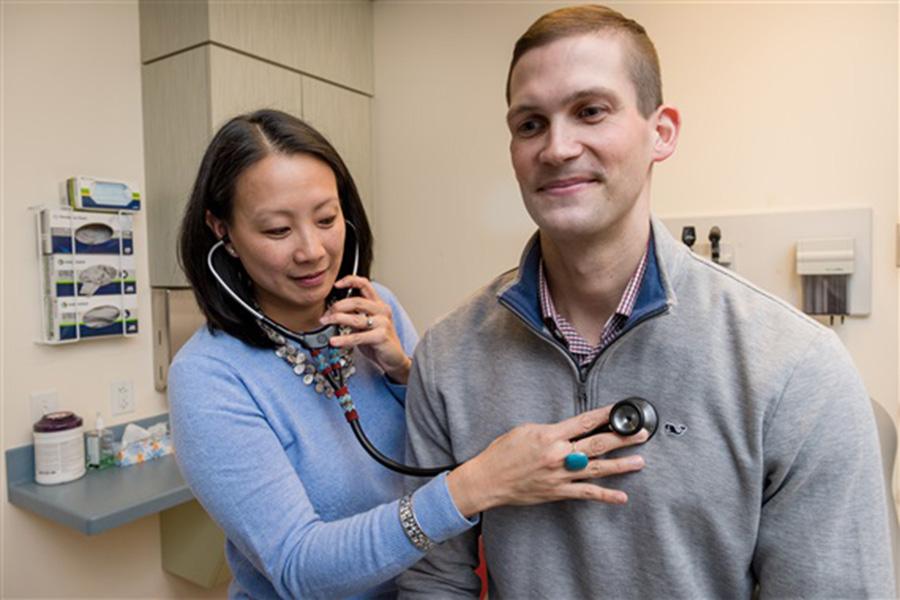New Dana-Farber Center Focuses on Young-Onset Colorectal Cancer
Since 1994, cases of this type of cancer among young adults have increased by 51 percent.

Dr. Kimmie Ng / Photo courtesy of Dana-Farber Cancer Institute
Typically, for people in their 20s and 30s colon health isn’t much of a concern. After all, you’re not expected to get it checked out until you’re 50. But according to data from the National Cancer Institute, cases of young-onset colorectal cancer have increased by 51 percent since 1994 and that is a statistic that’ll make your head turn.
In order to address this sharp increase, the Dana-Farber/Brigham and Women’s Cancer Center announced the launch of the Young-Onset Colorectal Cancer Center. The center is among the first of its kind in the United States, focusing on those diagnosed with the disease before the age of 50. It will offer young adult-focused resources and treatment, as well as support services, and colonoscopy screenings. Research of the disease will be at the cornerstone of what the center provides to understand the growth among young adults and find better ways to prevent, detect, and treat it.
“By the year 2030, colon cancer is estimated to rise 90 percent and rectal cancer to rise by a staggering 124 percent in these young patients,” Kimmie Ng, the director of the Young-Onset Colorectal Cancer Center, said in a press release. “This highlights the urgency of trying to identify new ways to prevent, treat, and catch these cancers earlier at a curable stage.”
As part of their mission, the center will work on increasing public awareness about the risks and warning signs of young-onset colorectal cancer and will be offering colonoscopies on the weekends to target those working millennials. And services, tailored to unique issues young people might face, including fertility, sexual health, nutrition, psychological support, and more will be offered.
Ng is optimistic about this collaboration between the two medical centers. “Being able to harness all our intellect and technology in one center will put us at the forefront of understanding why this is happening, what the differences are in cancers that develop in young people and innovating new ways to prevent and treat this cancer.”


